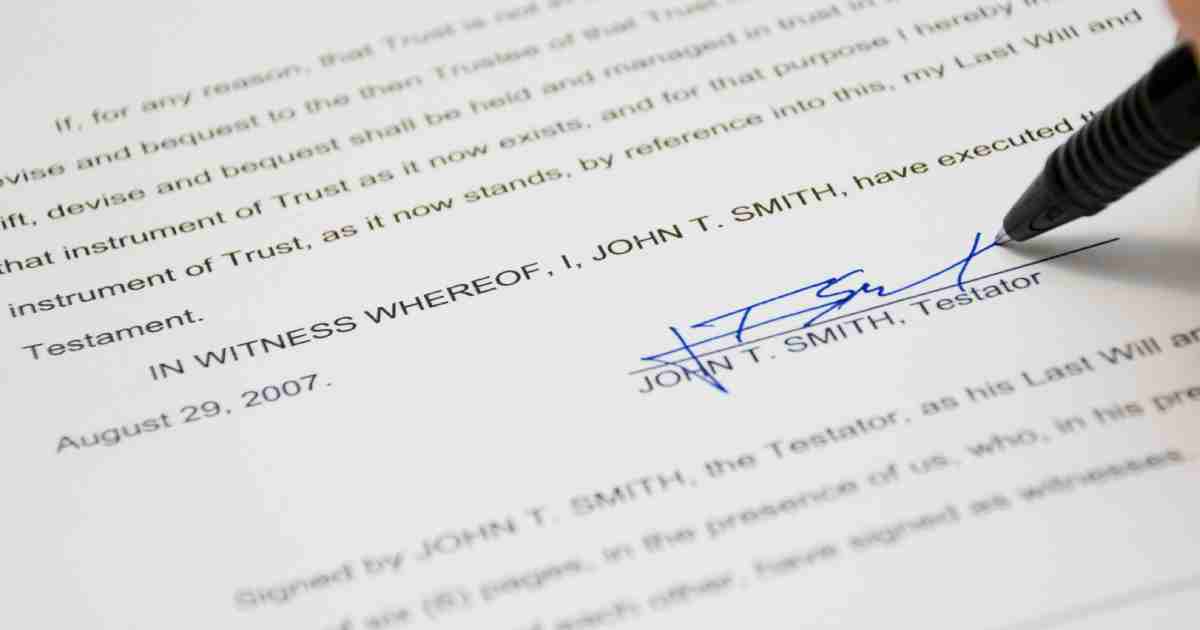
A Will, which is a legal document outlining a person’s wishes regarding the distribution of their assets after death, can be annulled under certain circumstances. The specific grounds for annulment may vary depending on the jurisdiction, but here are some common ways a will can be annulled:
- Lack of testamentary capacity: If the person making the will (known as the testator) was not of sound mind or lacked mental capacity at the time of creating the will, it can be challenged and potentially annulled. This could include cases of mental illness or senility that affected the testator’s ability to understand the nature and consequences of their actions.
- Undue influence: If it can be proven that the testator was coerced, manipulated, or unduly influenced by another person in the creation or alteration of the will, it may be deemed invalid. Undue influence typically involves a person exerting pressure or control over the testator, leading to a will that does not reflect the testator’s true intentions.
- Fraud or forgery: If the will was procured through fraud, deception, or forgery, it can be invalidated. For example, if someone impersonates the testator or forges their signature, the will may be annulled.
- Improper execution: Each jurisdiction has specific requirements for the proper execution of a will, such as the presence of witnesses or the testator’s signature. If these formalities are not followed, the will may be considered invalid and subject to annulment.
- Revocation: A will can be annulled if the testator intentionally revokes it. This can be done through various means, such as creating a new will, physically destroying the existing will, or executing a revocation document.
- Testamentary fraud: If someone intentionally deceives the testator about the contents or nature of the will, causing the testator to make decisions they would not have made otherwise, the will can be challenged and potentially annulled.
A Will can also be affected by various events or circumstances, such as marriage, divorce, and amendments, which may not necessarily result in the complete annulment of the will but can impact its validity or certain provisions. Here’s an explanation of how these factors can affect a will:
- Marriage: In many jurisdictions, getting married can automatically revoke a pre-existing will, unless the will was made in contemplation of the marriage. If a will is revoked due to marriage, the testator will need to create a new will or make appropriate amendments to reflect their updated wishes.
- Divorce: Similarly, divorce or legal separation can have an impact on a will. In many jurisdictions, provisions in favour of a former spouse are typically revoked upon divorce. This means that any gifts, appointments, or fiduciary roles granted to the ex-spouse in the will may become void. It’s important to review and update a will after a divorce to ensure that it aligns with the testator’s current intentions.
- Amendments: A will can be modified or amended by the testator through a codicil, which is a separate document used to make changes or additions to the original will. The codicil must comply with the same legal requirements as the original will, such as proper execution and witnessing. An amendment can alter specific provisions of the will without invalidating the entire document. It’s worth noting that in some cases, if the changes made to a will are substantial or complex, it may be advisable to create a new will instead of relying on multiple amendments or codicils.
- Intentional destruction: If the testator intentionally destroys a will with the intent to revoke it, the will becomes invalid. However, it is crucial to note that accidental destruction does not nullify the will unless it can be proven that the testator had the intention to revoke it. In the estate of Stoker – a case heard in California in 2011 – Mr Stoker took his original Will, urinated on it and then burned it. The court decided “we hesitate to speculate how he accomplished the second act after the first. In any event, the decedent’s actions led to the compelling conclusion he intended to revoke his Will”.
For further advice on this complicated topic, please contact the team at Maplebrook Services Limited – www.maplebrookservices.com; [email protected]; 26600780.








